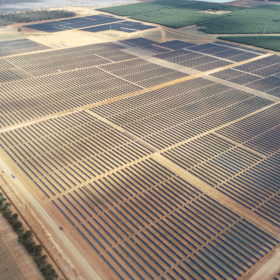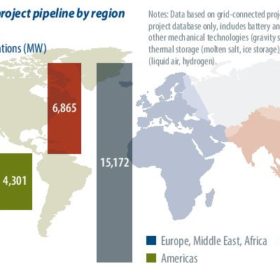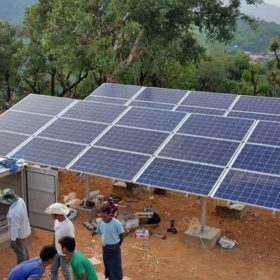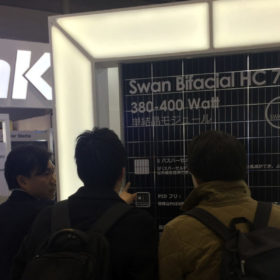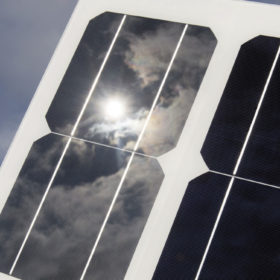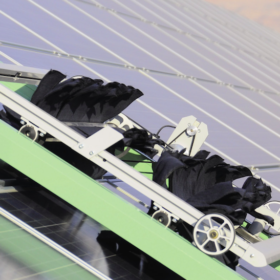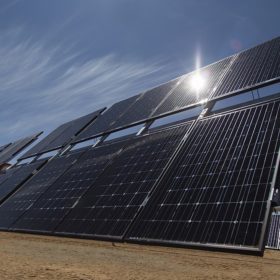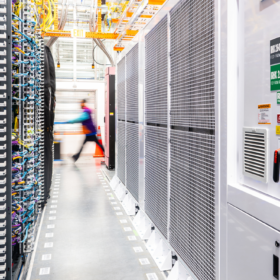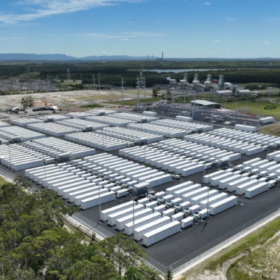Australia makes major contribution to global big PV uptake
The latest statistics highlights Australia’s contribution to the global utility-scale solar PV installation figures.
The blockchain club
Open-source blockchain platform Energy Web Foundation has revealed the number of its affiliates has risen from 37 last month to 100. New members include EnBW, Total and the State Grid Corporation of China. The platform was conceived to create an energy-blockchain ecosystem and to accelerate the energy transition.
Global battery storage pipeline reaches 15 GW
As data drifts in, 2018 is shaping up to have been a record-breaking year for battery energy storage, writes IHS Markit senior analyst Julian Jansen. Especially for front-of-the-meter projects, which experienced rapid growth. This growth was led by significant activity in South Korea, the United Kingdom, the United States, Australia, and China, which together accounted for 78% of battery energy storage projects commissioned in 2018, according to the Q4 2018 edition of the IHS Markit “Energy Storage Company and Project Database.”
Global solar demand reached 104 GW in 2018
According to new figures released by SolarPower Europe, last year saw 1.4 GW more new solar generation capacity than trade body had expected. Lower demand in China was compensated for by stronger developments in emerging markets.
If bifacial panels can compete on price the (backsheet) choice is clear
Jinko Solar has launched a new bifacial solar module, with a clear backsheet manufactured by DuPont, to compete with standard glass-on-glass bifacial products, as well to create markets where bifacial might not have previously fit.
Enphase is making money again
The California-based microinverter maker posted $92 million in revenue in the final quarter of last year, and more than $106 million in cash as the company reported its first positive quarterly and annual operating income figures in years. Enphase is booked out for all of this quarter and seemingly into the late spring months too.
Schneider Electric pulls out of utility-scale PV business
The French power electronics specialist is pulling out of the utility-scale segment to strengthen its profile in the residential and C&I space.
Long read: Reflections on a soiled module
Having quickly proven their performance boosting potential and durability, anti-reflective coatings are now found on the majority of modules rolling off the world’s production lines. Today, coating suppliers are looking to tackle losses from soiling as well as reflection, and working to keep up with cost reductions and extended lifetime expectations at module level. Older modules, installed without a coating, could also be set to benefit from their latest innovations.
Long read: Sweet sweep, module cleaning tech matures
The amount and nature of desert dust determines whether daily cleaning of solar modules is a favorable option. However, frequent and water-intensive cleaning, as well as the amount of labor required, can be costly in desert installations. But the ingenuity of automation is on its way to help.
New model for calculating bifacial boost
Belgian research institute imec has developed a new simulation framework it says can calculate the expected output of a bifacial PV system. The model could help improve developer understanding of the best system configurations for bifacial, and foster confidence among investors by providing a precise prediction of energy yields.
